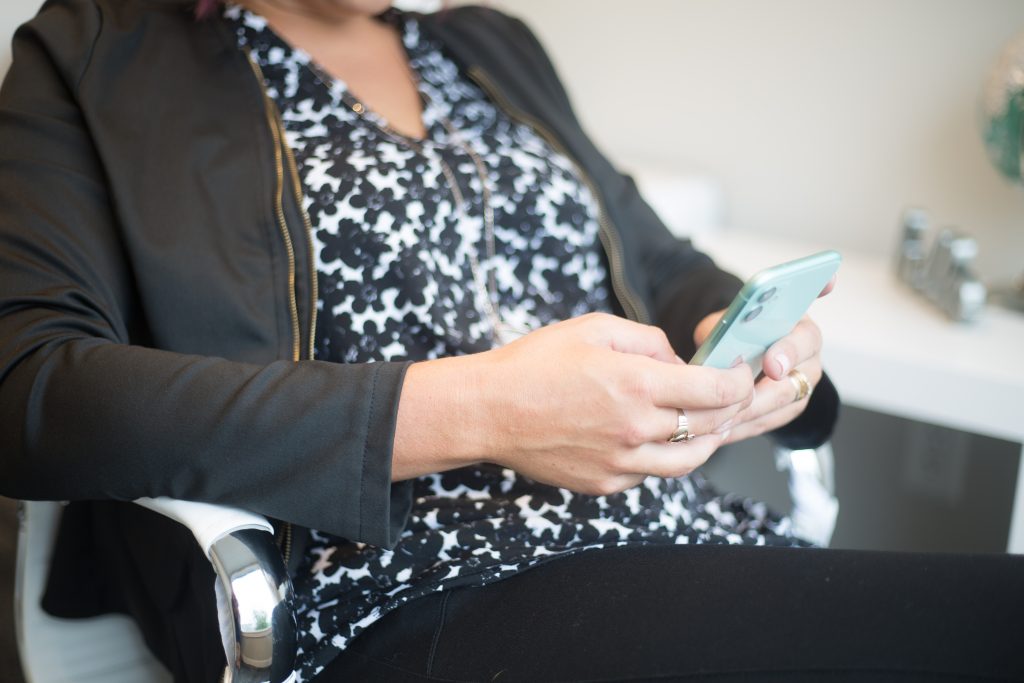You’ve probably heard a lot about the negative effects that social media has on your mental health, as some of them include generating fears, insomnia, and psychological insecurities. However, online communication tools can have a nice impact if you use them right. After all, there’s nothing strictly bad or purely good. Like any resource, social media has the impact that your behavior encodes. So, let’s have a look at what’s horrible and what’s great about the most popular place to hang out since the lockdown began.
Negative effects and why they happen
Let’s bust a popular myth—it’s not unequivocally proven that social media causes anxiety and depression. The National Center for Health Research says it can actually be the other way around, since the people who feel down may spend more time online to get calm. That’s why people who say that social media is a life-threatening phenomenon are not exactly right. Still, what are the real problems you can face because of “living on the Internet”?
- You might get the fear of missing out on opportunities. Fear of missing out (FOMO) became common due to a seemingly harmless thing: everyone likes to boast about how great their life is, especially on social media. Unfortunately, many followers begin to feel insecure about how “dull” their everyday lives seem compared to Instagram celebrities. This can cause them to become obsessive about their activeness online, paying no attention to the real world.
- Using your phone in the evening can cause insomnia. It’s all about the blue light coming from the screen. Our eyes can easily mistake it for daylight and send a wake-up signal to the brain. This might be the reason you have trouble falling asleep, so it’s really important to do something about this influence.
- Social media can undermine your confidence. Today, there are many people who dive into their phones whenever they can. Little do they know that such behavior may be caused by the insecurities that they’ve developed while exploring Instagram and Facebook. It may not be an obsession, like with FOMO, but seeing countless perfect bodies or ideal images can make anyone think they can’t really contribute to the offline community.
Photo by Elisa Ventur on Unsplash
How social media can help a person
Those negative sides aren’t all that social media has to offer. There are countless families that were only able to stay in touch using Zoom or Skype during the recent pandemic, and some people learn to socialize using Facebook, which saves them a lot of time and effort. Moreover, this tool can help with mental illnesses rather than cause them! Intrigued? Let’s take a closer look at the benefits we get from online communication.
- It allows everyone to get messages across faster and always stay in touch. Our mothers and grannies must love this feature, but so do business people and everyone else. Instant access to the most important individuals is pleasant, convenient, and necessary to have the life we all live today. Swift communication is something our society relies on, so it would be hypocritical to say we were better off without messengers.
- No matter how rare your interest is, you can find a supportive community online. You’ll meet some stamp collectors as well as football fans on Facebook or Instagram, as these places can guide you to the people who understand and share your passions. This way, users can find the courage to take up exclusive hobbies and invent new ways to express themselves. If that’s not constructive and psychologically beneficial, then what is?
- People who have conditions that prevent them from communicating well offline often resort to Twitter and Facebook. As you’ve probably guessed, such people are more comfortable alone, and sometimes they feel intimidated by live conversations. Face-to-face interactions exhaust them while online chats make them feel good and valued. Sure, it’s important to enter the offline community too as the treatment progresses, but social media is actually a great tool to avoid isolating these individuals from the people who can support them.
Photo by Surface on Unsplash
How do you balance the pros and cons of social media?
It’s all very nice, but the upsides seem to come naturally, while it’s really challenging to manage the downsides of social media with minimal risk. You need to get advice on how to do it and update your information to keep up with scientific findings and tendencies. Here are a few tips to become a more confident Facebook, Twitter, or Instagram user.
- Remember to turn on the night mode on your smartphone 2 hours before you go to sleep. It would be better not to use any devices during that period, but, let’s face it, sometimes people just have to do it. There are important messages from our jobs that can arrive late, and relatives who are far away might only have a few hours to chat, which will likely be in the evening. So, set a reminder to minimize blue light from your phone with a built-in function.
- Educate yourself about the possible threats. Try studying cyberbullying cases and self-protection strategies on sites like HelpGuide dedicated to preventing people from suffering mentally. Using several sources and finding recent articles from social workers or clinical professionals is the best way to do it. Also, if you see any signs of toxic communication, it’s better to block that person as soon as possible.
- Try setting meaningful goals in real life so these achievements validate you. Fear of missing out and the envy that people sometimes feel toward their counterparts online can lead them to avoid real life and think of social media as the primary thing, while in reality it’s the other way around. It’s important to remember that online posts only show what’s happening offline, and live according to that principle. You can take pictures, write stories or songs, try volunteering, achieve great heights at sports—anything that makes you feel like you’re living the best life possible.
Bottom line
Basically, these are the main things to know about social media if you want to start using it responsibly. It’s better to treat this article as a starter’s guide rather than an exhaustive list of the things you need to do. It’s important to research this topic because online communication is a relatively new concept and many people treat it with extreme caution. That’s why it’s very important to avoid the dangers and highlight the benefits of social media so that people improve it instead of opposing this phenomenon. Using Facebook and Instagram to become more mentally healthy instead of exhausting yourself with fear of missing out or social anxiety is a perfect place to start.




